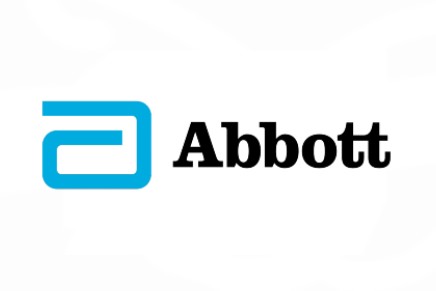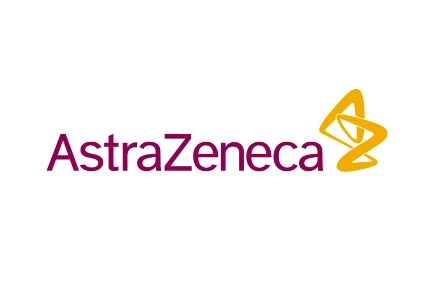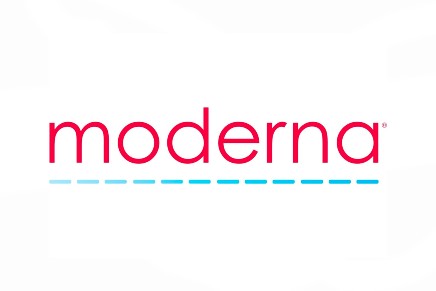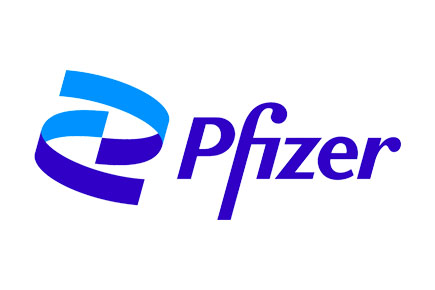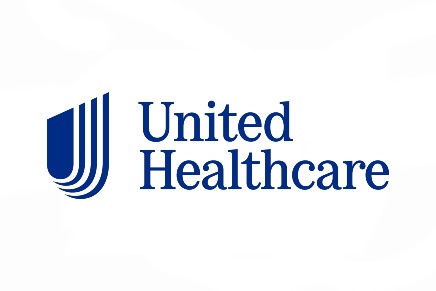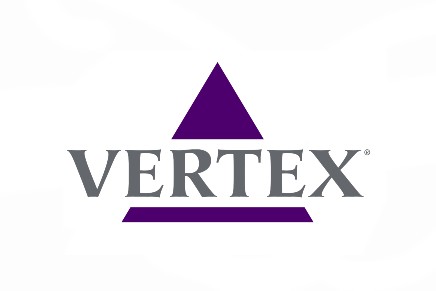Healthcare is always going to be a necessity around the world. And, following the Covid-19 pandemic, many health companies have witnessed strong growth. All this and more could potentially make healthcare stocks a promising addition to your portfolio.
Though, with so many healthcare companies out there, you may be asking yourself: what is the best healthcare stock to invest in?
Well, my guide will list some of the best health care stocks available on the market, and some of the different ways you can invest in them.
Also consider: My guide to the best stocks and shares to buy now
Top healthcare stocks in the UK for July 2024
Remember: this list is not a personal recommendation and does not constitute financial advice. Do not buy these investments solely based on what you read in this article. These picks do not constitute personal recommendations or financial advice.
1. Abbott Laboratories
[stock_market_widget type=”card” template=”basic2″ assets=”ABT” display_currency_symbol=”true” style=”font-size: 1rem” api=”yf”]
Abbott Laboratories is a US-based healthcare company that is mostly concerned with the research of new pharmaceutical drugs and medical devices.
The company is most known for researching and developing the world’s first HIV blood screening test in 1985.
Abbott Laboratories’ share price opened at $108.23 on the morning of 1 December 2022.
You can see that the company has had a tough year, with a year-to-date (YTD) performance of -21.96%. Though, looking at Abbott Laboratories’ historical data, it was performing relatively well before this year.
Indeed, after a drop from $89.66 on 14 February 2020 to $68 on 20 March 2020 following the Covid pandemic, it eventually climbed to an all-time high of $140.74 on 31 December 2021.
This rise following Covid, and subsequent fall to the levels we’re seeing today, could be partly attributed to the fact that Abbott Laboratories produced its own Covid testing kits. Now that Covid is starting to subside, demand for these testing kits has dropped.
If you’re looking for a company that pays dividends, then Abbott Laboratories could be the company for you, paying dividends of 1.73%.
In fact, Abbott Laboratories is a member of the S&P 500 Dividend Aristocrats, which is a list of companies that have increased annual dividend payments for a minimum of 25 years in a row.
Source: Google Finance
Best platforms to buy shares
- Interactive Investor – Low, flat fee of £9.99 per month
- Freetrade – Get a free share
- InvestEngine – 0% commission
76% of retail investor accounts lose money when trading CFDs with this provider. You should consider whether you can afford to take the high risk of losing your money.
2. AstraZeneca
[stock_market_widget type=”card” template=”basic2″ assets=”AZN.L” display_currency_symbol=”true” style=”font-size: 1rem” api=”yf”]
Chances are, you’ve heard mention of AstraZeneca at some point over the last few years. This is because the pharmaceutical company was one of the largest Covid vaccine producers in the world.
This has clearly had an impact on the company’s share price, as following the Covid pandemic, AstraZeneca’s share price climbed from £63.16 on 13 March 2020 to £89.96 on 22 May 2020.
This wasn’t the end of the good news for AstraZeneca, though, as it continued to climb to an all-time high of £113.64 on 26 August 2022. This is relatively close to the healthcare company’s opening price of £112 on 1 December 2022.
In fact, 2022 has been such a good year for the pharmaceutical giant, that it has experienced YTD growth of 31.83% so far.
AstraZeneca is another company that offers dividend payments to investors, with a yield of 1.98% at the time of writing.
Source: Google Finance
Best platforms to buy shares
- Interactive Investor – Low, flat fee of £9.99 per month
- Freetrade – Get a free share
- InvestEngine – 0% commission
76% of retail investor accounts lose money when trading CFDs with this provider. You should consider whether you can afford to take the high risk of losing your money.
3. Azenta
[stock_market_widget type=”card” template=”basic2″ assets=”AZTA” display_currency_symbol=”true” style=”font-size: 1rem” api=”yf”]
Azenta, which is primarily a sample management and genomic service provider, mostly focuses on the development of drugs, sample and material storage, and clinical trials.
Notably, Azenta recently completed the acquisition of B Medical Systems, a manufacturer and distributor of blood management equipment, for $408 million.
The drug development firm is yet another company that, much like the global economy as a whole, has had a turbulent few years regarding its share price.
Indeed, after climbing rapidly from $28.61 on 12 March 2020 to an all-time high of $121.41 on 5 November, the company has since dropped all the way back down to the prices we’re seeing today. As of 1 December 2022, this stands at $61.14.
All of this has resulted in YTD growth of -42.31%.
Unfortunately, Azenta doesn’t offer dividends, so if this is your reason for investing, you may want to consider purchasing shares in a different company.
Source: Google Finance
Best platforms to buy shares
- Interactive Investor – Low, flat fee of £9.99 per month
- Freetrade – Get a free share
- InvestEngine – 0% commission
76% of retail investor accounts lose money when trading CFDs with this provider. You should consider whether you can afford to take the high risk of losing your money.
4. Johnson & Johnson
[stock_market_widget type=”card” template=”basic2″ assets=”JNJ” display_currency_symbol=”true” style=”font-size: 1rem” api=”yf”]
With a market cap of $467.16 billion, Johnson & Johnson is one of the largest companies in the healthcare sector.
The business is a multinational pharmaceutical and medical device manufacturer based in the US.
Johnson & Johnson was another one of the firms that was developing Covid vaccines at the height of the pandemic. And, aside from drugs, the firm owns a plethora of different brands, including:
- Tylenol
- Listerine
- Baby Powder
- Band-Aids
Historically, Johnson & Johnson’s performance has remained relatively stable over the last few years.
In fact, the company’s YTD growth is 4.16% at the time of writing. While this may not seem high at first glance, this shows that the company offers a potentially stable investment opportunity, especially considering how difficult other companies have found 2022.
After dropping from $150.13 on 14 February 2020 to $119.89 on 20 March 2020, the company’s share price grew consistently to $179.44 on 20 August 2021.
Though Johnson & Johnson’s share price did dip slightly to $159.20 on 26 November 2021, it has since continued to grow to the price we’re seeing today.
As of 1 December 2022, Johnson and Johnson’s share price opened at $179.
Also, if you want to invest for income, then Johnson & Johnson could be what you’re looking for, as the company currently offers a dividend yield of 2.53%.
Source: Google Finance
Best platforms to buy shares
- Interactive Investor – Low, flat fee of £9.99 per month
- Freetrade – Get a free share
- InvestEngine – 0% commission
76% of retail investor accounts lose money when trading CFDs with this provider. You should consider whether you can afford to take the high risk of losing your money.
5. Moderna
[stock_market_widget type=”card” template=”basic2″ assets=”MRNA” display_currency_symbol=”true” style=”font-size: 1rem” api=”yf”]
Moderna is yet another company that recently saw attention after it helped produce one of the Covid vaccines.
In fact, one of the earliest available Covid vaccines was developed by Moderna.
The firm, which has a market cap of $67.23 billion, is mostly considered a biotech company that focuses on RNA therapeutics. It aims to discover and develop new mRNA medicines for infections and cardiovascular diseases.
As for its share price, Moderna opened at $173.41 on the morning of 1 December 2022. Looking at the company’s historical performance, it seems to have been a difficult year for the firm.
Indeed, Moderna’s share price spiked rapidly from $132.55 on 1 April 2021 to $449.38 on 10 September 2021.
Though, after this spike, the company’s share price has been plummeting, resulting in YTD growth of -25.64%.
This drop in price can partly be attributed to the fact that Moderna’s Covid vaccine, while effective against older strains, struggles to fight newer Covid strains, such as the omicron variant.
It’s worth keeping in mind that Moderna doesn’t offer dividends to investors, so if you wish to invest for a passive income, you may want to investigate another company on my list.
Source: Google Finance
Best platforms to buy shares
- Interactive Investor – Low, flat fee of £9.99 per month
- Freetrade – Get a free share
- InvestEngine – 0% commission
76% of retail investor accounts lose money when trading CFDs with this provider. You should consider whether you can afford to take the high risk of losing your money.
6. Pfizer
[stock_market_widget type=”card” template=”basic2″ assets=”PFE” display_currency_symbol=”true” style=”font-size: 1rem” api=”yf”]
Pfizer is a biopharmaceutical company that is mostly concerned with the discovery, development, and delivery of different medicines.
You may recognise Pfizer as a producer of Covid vaccines; it was, in fact, the largest developer of Covid vaccines.
The US-based company has a market cap of $284.59 billion as of 1 December 2022. Better yet, Pfizer offers relatively high dividend rates of 3.16% to investors.
Pfizer’s YTD growth is currently -10.57%, and while it has been a relatively tough year for the pharmaceutical giant, its historical performance shows that it remains high.
Indeed, after hovering around the $35 mark between May 2020 and April 2021, Pfizer’s share value climbed to an all-time high of $59.48 on 17 December 2021.
After this spike, Pfizer’s share value has since dropped to the prices we’re seeing today, though it remains higher than pre-Covid levels. As of 1 December 2022, Pfizer’s share price rested at $50.53.
Source: Google Finance
Best platforms to buy shares
- Interactive Investor – Low, flat fee of £9.99 per month
- Freetrade – Get a free share
- InvestEngine – 0% commission
76% of retail investor accounts lose money when trading CFDs with this provider. You should consider whether you can afford to take the high risk of losing your money.
7. UnitedHealth Group inc
[stock_market_widget type=”card” template=”basic2″ assets=”UNH” display_currency_symbol=”true” style=”font-size: 1rem” api=”yf”]
UnitedHealth Group inc is an all-round health and wellbeing company that provides a broad range of health products and insurance in the US.
In 2020, UnitedHealth Group was able to continue operations following the Covid pandemic as it switched to virtual consultations.
This has seemingly helped the company’s revenue growth greatly, as its historical data shows.
Indeed, after a slight dip from $298.78 on 14 February 2020 to $206.59 on 20 March 2020, UnitedHealth Group has consistently grown to its opening price of $552.36 on 1 December 2022.
Amazingly, UnitedHealth Group’s YTD growth remained positive this year at 8.8% despite a difficult year for businesses around the world.
And, even better, the company even offers dividends to investors at a rate of 1.21% as of the time of writing.
Source: Google Finance
Best platforms to buy shares
- Interactive Investor – Low, flat fee of £9.99 per month
- Freetrade – Get a free share
- InvestEngine – 0% commission
76% of retail investor accounts lose money when trading CFDs with this provider. You should consider whether you can afford to take the high risk of losing your money.
8. Vertex Pharmaceuticals
[stock_market_widget type=”card” template=”basic2″ assets=”VRTX” display_currency_symbol=”true” style=”font-size: 1rem” api=”yf”]
Vertex Pharmaceuticals is a US-based biotech company that develops drugs for the treatment of cystic fibrosis.
As well as the production and distribution of medicines, Vertex Pharmaceuticals also conducts research and development to discover new healing methods.
Vertex Pharmaceuticals was recently awarded a review of its gene editing therapy systems from the US Food and Drug Administration (FDA), which it hopes will help treat rare blood disorders such as sickle cell disease.
As for its share value, Vertex Pharmaceuticals opened at $318.53 on the morning of 1 December 2022.
2022 has been a strong year for the company, as it has experienced YTD growth of 43.64%. Though, looking at Vertex Pharmaceuticals’ historical data, it has been a turbulent few years.
Indeed, after climbing from $170.29 on 27 September 2019 to $293.95 on 10 July 2020, Vertex Pharmaceuticals’ share price gradually dropped back down to $181.60 on 15 October 2021.
Despite this, the company recovered strongly and is now experiencing all-time highs.
One thing to note about Vertex Pharmaceuticals is that it doesn’t offer dividend payments whatsoever.
Source: Google Finance
Best platforms to buy shares
- Interactive Investor – Low, flat fee of £9.99 per month
- Freetrade – Get a free share
- InvestEngine – 0% commission
76% of retail investor accounts lose money when trading CFDs with this provider. You should consider whether you can afford to take the high risk of losing your money.
Please note
The value of your investments (and any income from them) can go down as well as up and you may not get back the full amount you invested. Past performance is not a reliable indicator of future performance. Investments should be considered over the longer term and should fit in with your overall attitude to risk and financial circumstances.
What is the best healthcare stock to invest in?
There is technically no “one size fits all” answer as to which company in the healthcare sector is the best to invest in, as this depends on your investment strategy and your reasons for investing in the first place.
For example, if you want to invest in a company that has remained relatively stable and is lower risk, then you may want to consider a company such as Johnson & Johnson.
Meanwhile, if your reason for investing is to gain a passive income over time, you should ideally invest in a healthcare stock that has high dividend yield rates, such as Pfizer.
Finally, if you wish to invest in a company that may not be currently performing well, but may have great growth prospects in exchange for heightened risk, you may want to consider a company such as Abbott Laboratories.
What are healthcare stocks?
As the name suggests, healthcare stocks are shares that can be purchased in companies that provide medical services.
The healthcare industry is one of the largest and most complex sectors on the market, as it consists of a wide variety of different companies and healthcare providers.
Many healthcare companies recently came into the limelight after the Covid pandemic – for example, those such as Abbott Laboratories and AstraZeneca helped to develop and distribute vaccines, testing kits, and more.
What are the different types of healthcare stocks?
As mentioned, the healthcare system is comprised of many different complex sectors, each playing its own wider role in the market.
This ranges from health insurance to medical services, so continue reading my guide to discover the different types of medical stocks to help you decide which you’d like to invest in.
Drug stocks
If you want to invest in research companies that focus on developing drugs, then you may want to look for companies classed as “drug stocks”.
As the name suggests, this involves companies that mostly focus on the research and development of new medicines and prescription drugs.
Drug stocks can typically be split into two groups: biopharmaceuticals and pharmaceuticals. A biopharmaceutical company will use live organisms to create complex drugs in an attempt to treat chronic and terminal ailments, as well as other rare genetic diseases.
Meanwhile, normal pharmaceutical companies typically use chemicals to produce drugs to treat other illnesses and conditions.
Medical device stocks
As the name indicates, medical device stocks are companies that produce medical devices for use by patients.
These medical devices and healthcare products might include:
- Blood pressure monitors
- Disposable gloves
- Thermometers
This category could also include companies that provide medical equipment to hospitals.
Payer stocks
“Payer stocks” essentially covers companies that pay out healthcare benefits to customers. For example, this might be firms that provide health insurance or that are pharmacy benefit managers.
These companies typically provide medical insurance to customers and then charge premiums to cover the costs.
Since payer stocks are mostly focused on health insurers, they are more typically US-based due to the fact that the American healthcare system revolves around insurance, while health in the UK is overseen by government agencies. Though, there are, of course, many private health insurers in the UK.
Healthcare provider stocks
Finally, healthcare provider stocks are simply companies that provide healthcare services to the general public.
This can be any sort of medical care, including:
- Hospitals
- GPs
- Surgery centers
- Virtual care services.
The different ways of investing in healthcare stocks
As well as there being many different types of companies, there are also several different ways you can invest in the healthcare sector.
Two of the most common ways to invest are through either individual stocks or funds. Continue reading to find out how these investing methods work so you can decide which best suits your investment strategy.
Individual stocks and shares
Individual stocks are most likely what initially comes to mind when you think about investing.
This is simply when you buy a share in a company, after which you essentially own a very small fraction of the business.
You can then hold onto your shares in a company until the value appreciates, after which you can sell your stock for a profit.
Some companies may also offer dividends, which are regular payments made to investors. Many healthcare stocks pay dividends, including Abbott Laboratories, AstraZeneca, and Johnson & Johnson.
Though, it’s important to keep in mind that not all companies offer these.
Funds
Meanwhile, funds are a type of pooled investment that use investors’ money to invest in several different healthcare stocks all at once.
Since these funds are typically run by experienced fund managers, informed decisions are made about the companies the fund will invest in. This is a major benefit of a fund – you instantly gain exposure to a number of different companies, which also diversifies risk.
Investors are then either paid a dividend depending on the performance of the fund, or sell their stake in the fund for a profit when the value has appreciated.
One of the most common types of funds are exchange-traded funds (ETFs).
Best Healthcare Stock to Invest in FAQs
Is the healthcare sector a good investment?
The healthcare sector can be considered a good investment because there will likely always be a need for healthcare services due to factors such as pollution and an ageing population.
The Motley Fool states that around $8.3 trillion is spent on healthcare globally, and recent events, such as the Covid pandemic, have seen many healthcare companies grow in the past few years.
What is the biggest healthcare company in the UK?
The value of your investments (and any income from them) can go down as well as up and you may not get back the full amount you invested. Past performance is not a reliable indicator of future performance. Investments should be considered over the longer term and should fit in with your overall attitude to risk and financial circumstances.
- Learn how to invest in the FTSE100
- Have you considered transferring your pension?
- Find the best trading platforms

